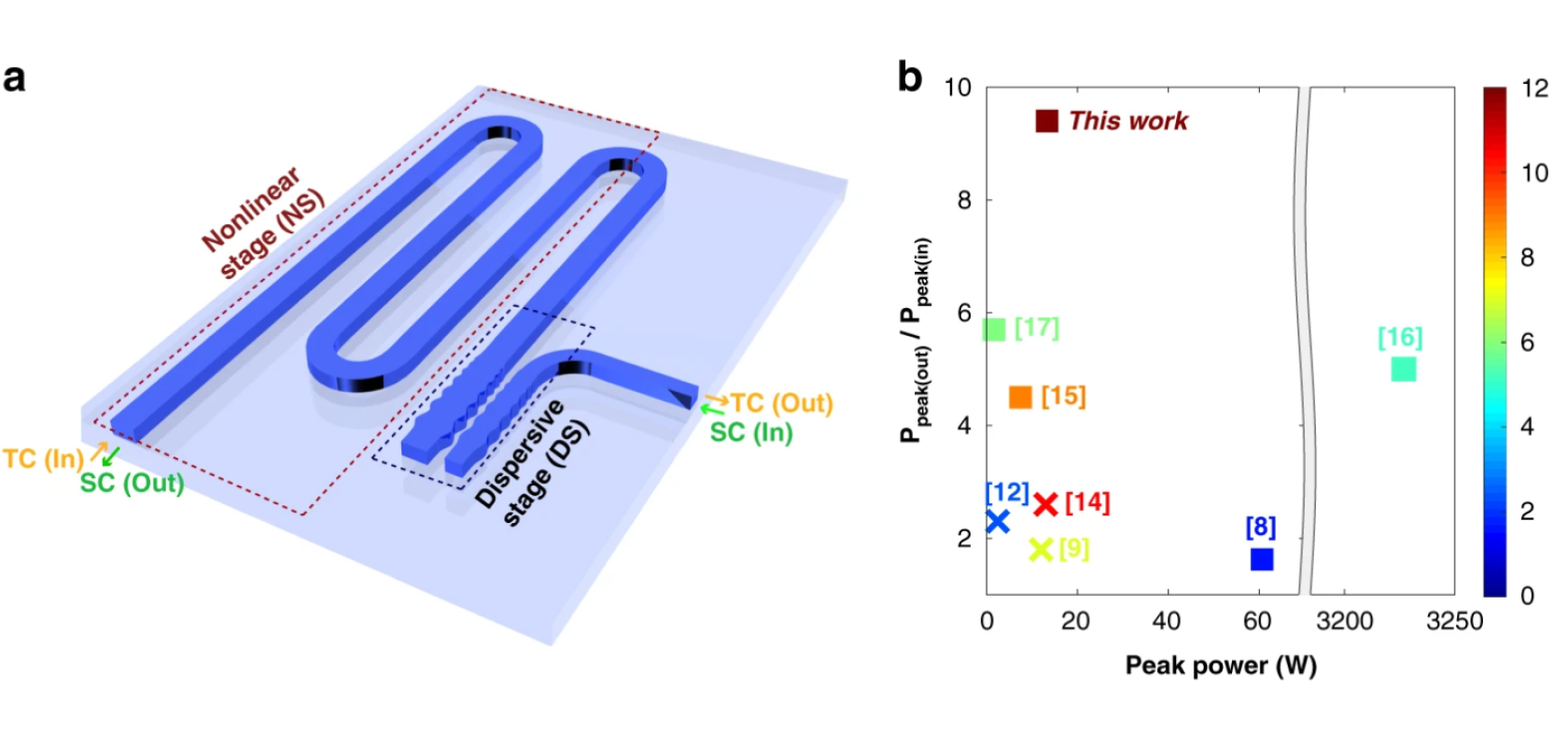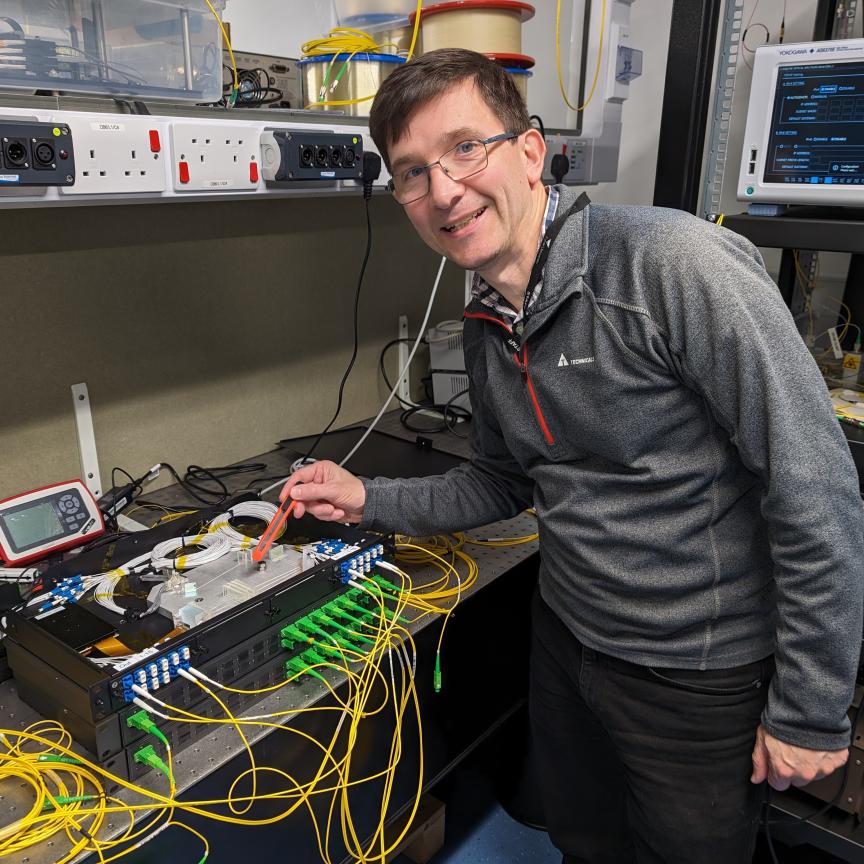A team of researchers has developed a temporal compression system that allows an equivalent increase in the number of bits transmitted by light in a fibre network.
The work, which appeared in Light: Science and Applications on June 18th, was a collaborative effort between researchers at the Singapore University of Technology and Design (SUTD), A*STAR Institute of Microelectronics and the Massachusetts Institute of Technology. The reduced size of the compressor system additionally provides a smaller footprint than many current benchtop compressor systems used for generating short pulses in ultrafast optical signal processing.
The system is implemented on the two-photon absorption (TPA)-free, CMOS-compatible ultra-silicon-rich nitride (USRN) platform, which has 500 times larger nonlinear parameter than that in stoichiometric silicon nitride waveguides. The researchers successfully demonstrated high temporal compression of 5.8ps pulses to 0.55ps, which is equivalent to a compression factor of 11 times using a low input peak power of 13.3 W, as well as 9.4 times increase in the pulse peak power.
This high compression was thanks to a two-stage design that featured a dispersive element and a strongly nonlinear component, both of which were integrated on the same chip. Providing strong compression on such a small device footprint could facilitate low-cost deployment of short pulses needed in telecommunications, data centre, precision manufacturing and hyperspectral imaging.


